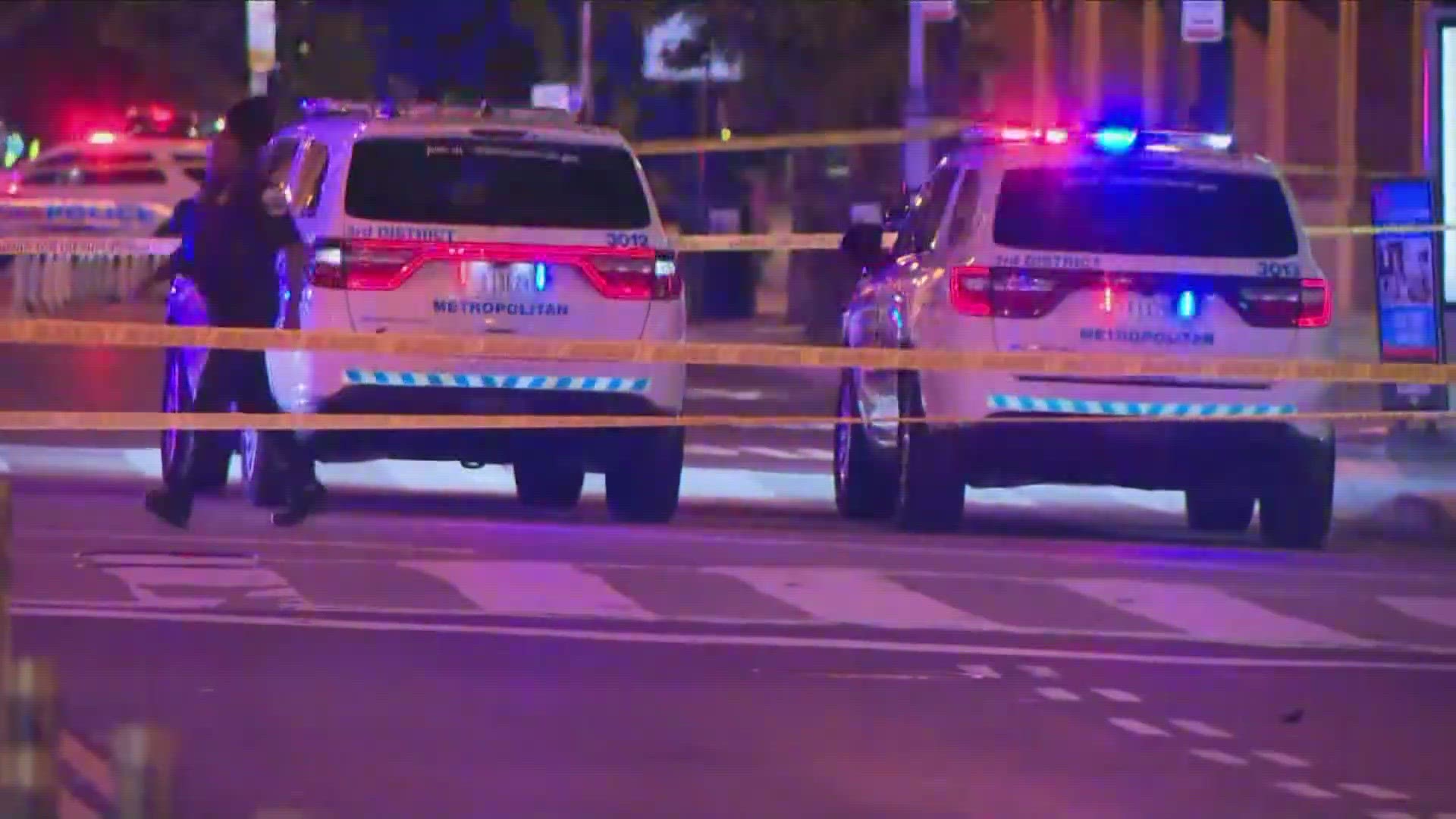WASHINGTON — The Council of the District of Columbia is expected to hold a first vote Tuesday about a sweeping set of bills to reduce crime.
The plan, sponsored by Councilmember Brooke Pinto and known as Secure DC, is an omnibus that contains provisions from a dozen individual pieces of legislation.
Secure DC is a wide-ranging response to the rise in crime experienced in Washington D.C. in recent years. It includes money for new police technology, increased data tracking, new criminal offenses, and even improved food in the D.C. Jail.
The plan has lots of vocal supporters and critics, especially concerning one specific element of it.
Campaign Zero, a national civil rights organization, is rallying opposition to Secure DC on social media. It recently posted a series of claims regarding the plan, including that it would criminalize gatherings of two or more people. The posts were shared more than 3,700 times on Instagram and X (formerly known as Twitter) and viewed hundreds of thousands of times.
QUESTION
Will the Secure DC omnibus criminalize all gatherings of two or more people?
SOURCES
DeRay McKesson, Campaign Zero
ANSWER
The omnibus does not criminalize gatherings, but it allows officers to arrest people who refuse to disperse under limited circumstances.
WHAT WE FOUND
The legislation this claim refers to is the Addressing Crime Trends Now Amendment Act of 2023. It was proposed by Mayor Muriel Bowser and introduced in the council in November 2023.
Among the provisions of the bill is one to create drug-free zones. The bill gives authority to the chief of police to create drug free zones in public places known for high rates of drug crimes or violent crimes. The drug free zone must be marked, may only cover a square area with less than 1,000 feet on each side, and may be in effect for no more than 120 hours (five days).
Once a drug free zone is established, police officers can ask groups of two or more people to leave the area if the officer reasonably believes they are committing a drug crime. The officer must base his/her decision on visual evidence, information from reliable sources, known gang affiliation of the people in question, or known convictions for drug offenses.
Anyone who refuses to leave the area after being told to by an officer could face up to 180 days in jail, a fine of $300, or both.
A spokesperson for Councilmember Pinto’s Office added to WUSA9, “Individuals seeking medical or drug treatment within the zone, or who are not engaged in illegal activity (such as waiting for a bus or going to your home), would be exempt from the designation.”
The spokesperson added that the police chief must give at least 24 hours notice to the DC Council, the directors of relevant social services agencies, and any licensed medical or social services clinics in or adjacent to the drug free zone.
DeRay McKesson, the executive director of Campaign Zero, said the vague language in the bill could allow for abuses.
"The police can essentially detain people or stop people if they suspect them of future drug use," he stated, "if they look like they're a lookout for the police, if they are concealing their identity. That could be as simple as putting on a hoodie."
He added that someone peering down a street to watch for an approaching Uber could be mistaken for a lookout.
McKesson mentioned that the bill as written says the police chief must notify the DC Council prior to the implementation of a drug free zone, but the chief does not need approval from the council, mayor, or anyone else. He also refuted the potential argument that if someone is not doing anything wrong, they will have nothing to worry about.
"That's what people said about stop and frisk," he replied. "And we think that is a violation of people's civil rights."
Tuesday's vote would be the first of multiple votes required before Secure DC could become law.

